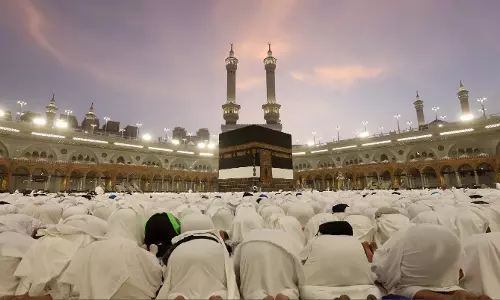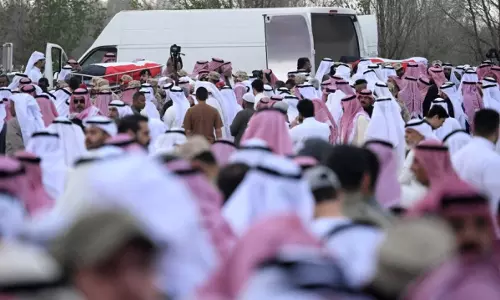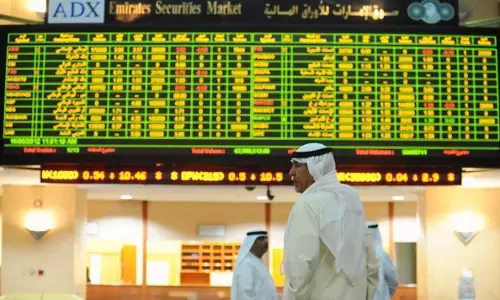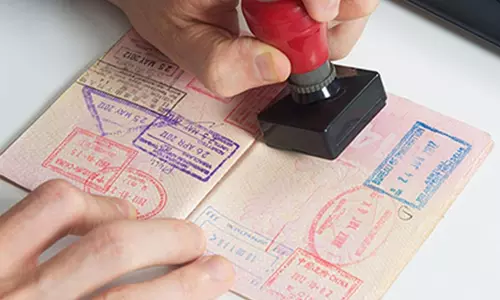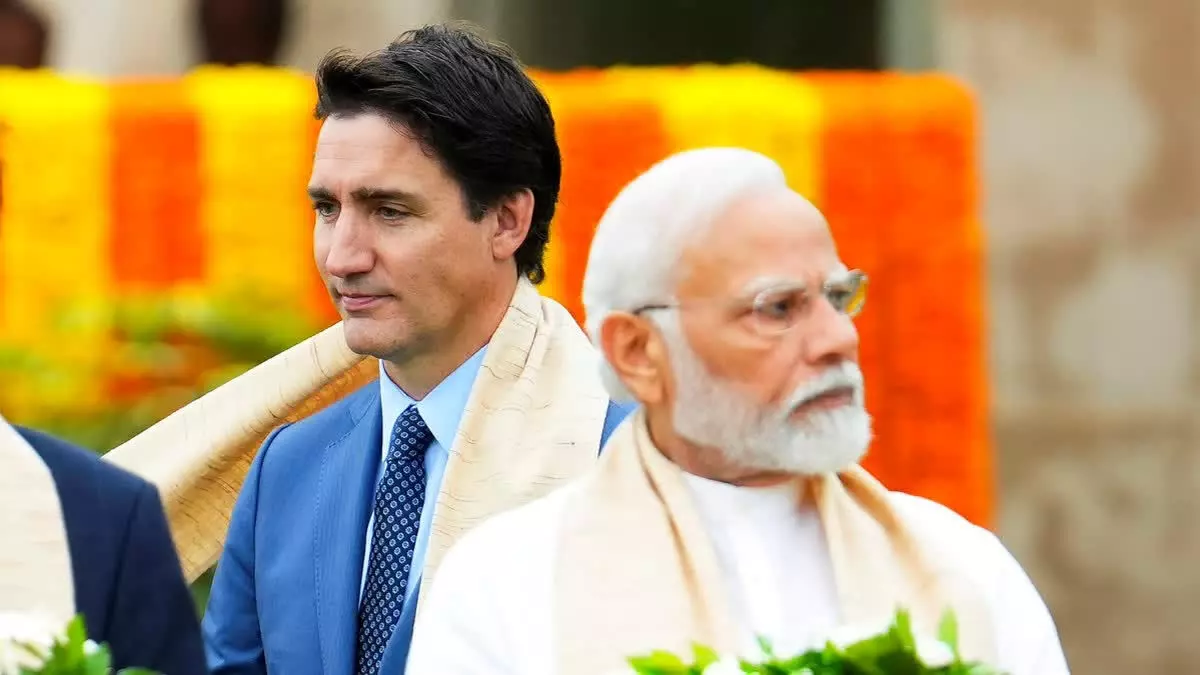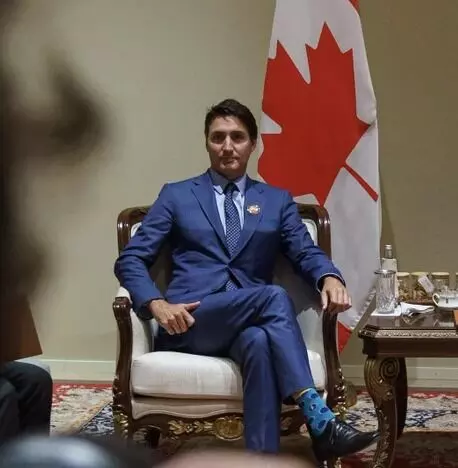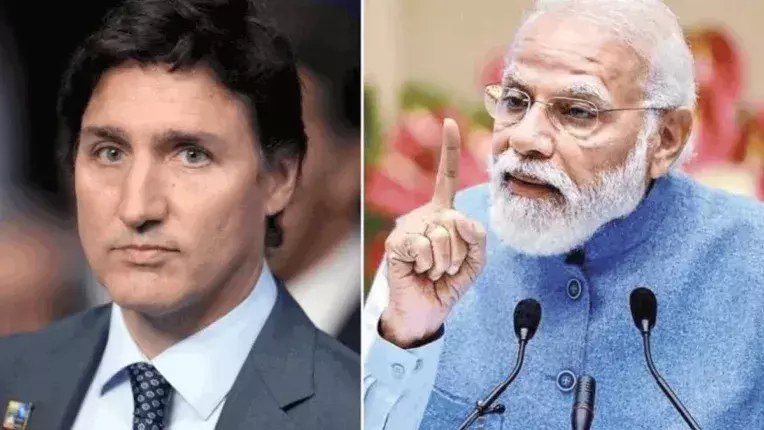
Amid India-Canada diplomatic row
text_fieldsCanadian Prime Minister Justin Trudeau's allegation that India was involved in the killing of Hardeep Singh Nijjar, a Sikh separatist leader and the head of the Khalistan Tiger Force, a declared terrorist organization, and the actions taken on the same, has caused a rift in the diplomatic relationship between the two countries. Canada has expelled a diplomatic officer accusing the Indian diplomatic service of involvement in the murder. India promptly retaliated in the same coin by expelling a Canadian embassy official. India issued travel advisories to Canada citing security concerns too. India has now decided to suspend issuing visas to Canadians until further notice. Bilateral relations have taken a beating as both sides started taking action and counter-response. As Sikh protest over the incident intensifies, the Indian diaspora in Canada, which has the largest Sikh presence in the world outside of Punjab, is worried. Separatist organizations working for an independent Sikh state have long been active in Canada. The particular democratic structures and conditions of that nation work in their favour.
Nijjar, a native of Bhar Singh Pura in the Jalandhar district of Punjab migrated to Canada in 1997. He was the president of Guru Nanak Sikh Gurdwara in Surrey, British Columbia, Canada. However, in 2020, the Ministry of Home Affairs declared Nijjar a terrorist under the Unlawful Activities (Prevention) Act (UAPA). It was alleged that Nijjar had made provocative statements and shared photographs and videos on social media platforms to “spread insurrectionary imputations” through hate speeches. Last year, the National Investigation Agency (NIA) had announced a reward of Rs 10 lakh to those who provided information about Nijjar, who was also listed as an accused in four cases. Nijjar has been accused of masterminding attacks on Hindu monks in Phillore, attacks on RSS leaders and programs in Punjab, holding the referendum for Khalistan in 2020 and various crimes. Nijjar was killed within days of being warned by Canada's intelligence agency that there was a threat to his life. He is the second prominent Sikh to be killed in Surrey. On 23 June 1985, Ripudaman Singh Malik was accused in the bombing of an Air India flight returning from Canada to India in which 329 people died but he was later acquitted. He was shot dead in Canada on July 14 last year.
On September 18, Trudeau revealed in the House of Commons, the lower house of Parliament, that security agencies have been investigating credible allegations that agents of the Indian government had a strong role in the killing of Canadian citizen Nijjar. He asked for India's cooperation in the investigation and also asked India to clarify its position regarding intrusive operations in another country under international law. Trudeau added that he directly spoke to Prime Minister Narendra Modi during the G-20 summit. Following this, Canada's foreign minister also announced that the chief of India's intelligence agency Research and Analysis Wing (RAW) had been expelled. Dismissing the allegation as 'absurd' and 'motivated', India summoned the Canadian High Commissioner in India to express its displeasure and informed about the decision to sack its intelligence chief. The United States and Australia have joined Canada in expressing concern over the allegations, which have by now garnered international attention. However, India insists that it cannot let go of Canada's move to encourage Sikh separatism. The Prime Minister expressed his displeasure on this matter to Trudeau who was at the G-20 summit. Both of them blamed each other and the trade deal did not materialise at the summit as planned. In 2015, Indian Prime Minister Modi visited Canada for the first time since 1973. Later, Canadian Foreign Minister Mélanie Joly visited India and held talks to activate the Free Trade Agreement. Efforts were being made to reactivate the Comprehensive Economic Partnership Agreement between the two nations, which is currently on hold following Trudeau's accusation. Aggravation of the problem will not only be an irreparable loss for both countries, but it will also have international consequences. Canada, which made the allegations, should bring evidence for it. Or it should apologize and withdraw the false accusation. India should be able to accept Trudeau's challenge and unequivocally state that no nation will be permitted to undermine it internationally while also providing a transparent response to the probe. It is essential to mend the rifts in bilateral ties in order to foster an atmosphere of cooperation and harmony for the world's orderly development, in accordance with international law and regulations.




